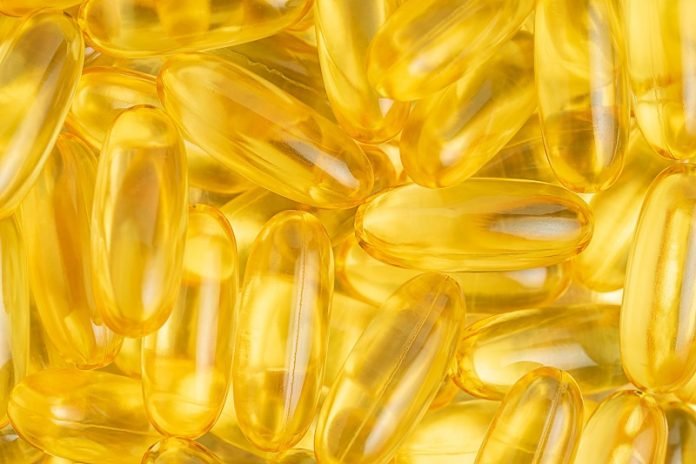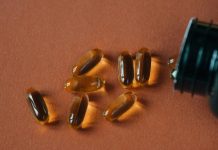
In the supplement world, vitamin D has long been the star.
For decades, it’s been touted as a cure-all supplement — a cheap, easy way to fix health problems ranging from depression to heart disease to even incontinence.
After all, all these medical conditions have been tied to low levels of vitamin D, so why not take more of it to fix the issues?
“There’s always something that we want to believe does it all, right?” said Mark Moyad, M.D., M.P.H., the Jenkins/Pokempner Director of Preventive & Alternative Medicine in the Department of Urology at University of Michigan Health and a renowned expert in supplements.
“People started seeing that vitamin D was involved in all these pathways as an anti-inflammatory, so there was this idea as I was getting older that it does everything.
And that’s immediately when I went, ‘That’s not possible.’”
Moyad’s hunch was proven right. As researchers have conducted more intensive studies around vitamin D, they’ve discovered that, in fact, adding more vitamin D to a patient’s diet doesn’t help with most of the medical conditions they thought it might.
Recently, the Journal of Urology asked Moyad, who’s been studying supplements for more than 30 years, to write an editorial about the latest analysis from a large clinical trial on vitamin D, the VITAL study, and to add some context to the conversation around the supplement.
He spoke with the Michigan Medicine News Break podcast about his observations over the years, including what your level of vitamin D tells you about your health, how to decide which brands of it to buy if you do need more of it and whether it might provide a much-needed prescription for a surprising area of medicine.
When you should take more vitamin D
Talk to your medical team, including, preferably, a dietitian, about whether you need to take more vitamin D. Pharmacists, who are often up to date on different drug interactions, can be a great resource as well.
If any of your providers have concerns about your bone health, they might recommend the supplement; people on certain osteoporosis medications or steroids, for instance, may need a boost of it.
The VITAL study, conducted by researchers at Harvard University, has found that vitamin D could be helpful in reducing the risk of developing autoimmune disease, too, but further research is needed in that area.
When you don’t need to take more vitamin D
However, the VITAL trial also found that the base level of vitamin D among the thousands of people they studied was far higher than expected.
That’s likely because supplement manufacturers and food producers started adding more of the vitamin to multivitamins and food, creating more “fortification” of vitamin D, when excitement about it started building, Moyad says.
Moyad even conducted his own experiment where he tracked his vitamin D intake and found he was getting far more than the recommended amount.
“I did a diary with my friends and a dietitian, and I was getting plenty from the fortified food sources and the multivitamin I was taking,” Moyad said.
Plus, various studies have found that even if you are low in vitamin D, adding more of it doesn’t necessarily address the problem.
For many of the conditions vitamin D was purported to help address — cardiovascular disease, cancer, diabetes, muscle health, fracture risk — researchers found it was no better than a placebo.
What your level of vitamin D tells you about your health
In fact, a low vitamin D level might be more of a consequence of a health problem than a symptom.
“Vitamin D may just be prognostic,” Moyad said. “It may just be a reflection of how you’re doing.”
Other commonplace strategies to improve your health, like quitting smoking, regular exercise and weight management, may be more effective in getting your vitamin D levels — and your overall health — back on track.
Where to get vitamin D
If you do need more vitamin D, a multivitamin could be the way to go; many of them include the recommended daily allowance. You can also get small quantities from select foods, including:
Oily fish like salmon
Egg yolks
Mushrooms that have been exposed to ultraviolet light
Milk, including some plant-based milks
Orange juice
Margarine
Spending time in the sun can stimulate your body to make its own vitamin D, but Moyad doesn’t recommend relying on the outdoors to give you your daily dose.
“I don’t like the idea of you trading one condition for another,” he said. “Skin cancer is a massive problem. Melanoma is a massive problem.
The idea that you have to expose yourself to ultraviolet light to make your own vitamin D might sound good, but it’s not necessary, and it comes with an added risk overall.”
How to buy vitamin D
Many different brands of vitamin D supplements are available on shelves and online. Moyad notes that you don’t need to shell out for the more expensive brands; the generic ones should do just fine.
He suggests looking for a supplement with a label that reads “USP,” “NSF” or “UL.” These seals of approval indicate that a third-party quality control group has tested the supplement to make sure its list of ingredients and their quantities are accurate.
Only then can you be confident, as Moyad says, that what the store “is selling is what it’s selling.”
Written by Mary Clare Fische.
If you care about nutrition, please read studies about how Mediterranean diet could protect your brain health, and the best time to take vitamins to prevent heart disease.
For more information about health, please see recent studies about plant nutrients that could help reduce high blood pressure, and these antioxidants could help reduce dementia risk.



